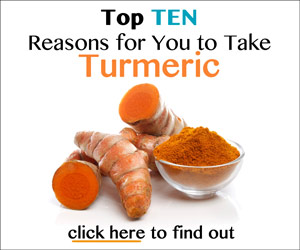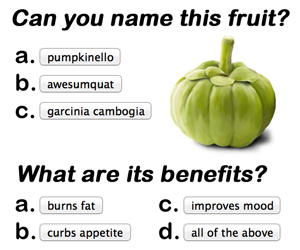Specific Curcumin Activity in Alzheimer's Disease

Antioxidant Power
The curcumin in turmeric is actually better at protecting the brain against free radical damage than other well-known antioxidants (such as vitamin E). That's because it's a more potent scavenger for the specific type of free radicals involved in neuron damage. (iv.1, 3-5, 34, 42-43, 45)
Helps Prevent DNA Damage Related to Risk of Alzheimer's Disease
Evidence indicates that people with genes that predispose them to developing Alzheimer's disease experience higher rates of damaged DNA. Researchers conducted animal studies using mice with these specific genes. They found that the ends of DNA strands were significantly shorter in these mice than mice without these genes. Shorter telomere ends increases genetic instability and risk of DNA damage. (iv.31, 85)
However, adding curcumin to the diet of these mice increased telomere length by two-fold compared to the untreated control group. These results suggest that dietary turmeric and curcumin could reduce DNA damage associated with the development of Alzheimer's disease. (iv.31, 85)
Detoxifying and Antioxidant Protection from Heavy Metals
Curcuminoid pigments from turmeric may protect brain neurons from free radical damage and inflammation caused by heavy metals. These turmeric compounds bind to and help the body get rid of lead and cadmium molecules. This detoxification process is called chelation. (iv.1, 6, 86-88)
Copper and iron are essential trace minerals to the body. However, excess metals can accumulate. Metal imbalances are often associated with aging and over-excited brain immune system cells. Curcumin can help regulate levels of these minerals, and chelate harmful excess copper and iron. The vanillic acid in turmeric chelates copper as well. Other turmeric compounds that help get rid of iron include quercetin and myricetin. (iv.1, 6, 86-88)
Chelation helps prevent the toxic effects of excess metals. For example, getting rid of excess iron can block the promotion of amyloid protein production. (iv.1, 6, 30, 39, 86-88)
ARE YOU AT RISK OF ALUMINUM TOXICITY?
Some people, such as those who have Down's Syndrome, have a genetically increased risk of absorbing aluminum. But even without a genetic susceptibility, some research suggests it's surprisingly easy to develop toxic levels of aluminum. (iv.69)
There are a number of factors that could increase the risk. How many of these apply to you? (iv.69)
- Mineral deficiency.
- Diet low in essential trace minerals and antioxidants.
- Health or genetic conditions that may cause natural antioxidant enzyme deficiency.
- Consuming juices high in citric acid (e.g., orange juice) while taking common antacids that contain aluminum.
- Eating foods high in MSG.
- Having dental fillings made with aluminum dioxide.
- Eating food prepared in aluminum pans.
Reversing Damage from Aluminum
Aluminum causes a number of toxic effects in the brain: (iv.53, 69)
- Inhibits the body's natural antioxidants.
- Increases generation of free radicals.
- Decreases lipid levels in brain cell membranes.
- Damages enzymes bound to neuron brain cells that are essential to brain function.
- Reduces levels of the neurotransmitter acetylcholine (ACh) important for memory and thinking.
In a recently published animal study, orally administered curcumin and solid curcumin nanoparticles were tested against the brain-damaging effects of aluminum. Results showed curcumin raised ACh levels and recovered lost lipids in brain cell membranes: (iv.53)
- Plain curcumin alleviated aluminum's damage.
- Curcumin nanoparticles almost completely reversed the negative effects of aluminum.
The beneficial effects of curcumin nanoparticles used in this study were comparable to the conventional Alzheimer's drug rivastigmine. Other research suggests that taking curcumin may help prevent damage to brain cells from aluminum in the first place. (iv.53)
Protects Against Diabetic and Insulin Resistant Damage in the Brain
Lab and animal studies suggest curcumin could help overcome insulin resistance and prevent associated damage to brain cells in a number of different ways, including:
- Anti-inflammatory: Inflammatory transcription factor and cytokine proteins (such as NF-ĸB and TNF) are linked to insulin resistance and chronic inflammation in the brain. Curcumin is a potent anti-inflammatory compound that inhibits these factors. (iv.89)
- AGEs prevention: Curcumin blocks formation of toxic advanced glycation end products (AGEs). These protein-sugar aggregates can form when blood glucose levels are high due to diabetes and insulin resistance. Studies show they can be toxic to neuron brain cells. (iv.56)
- Boosts gene activity related to insulin: Curcumin can regulate the genes that insulin normally does. This could help improve glucose metabolism. For example, curcumin binds to and activates gamma-type peroxisome proliferator-activated receptors (PPARs). Incidentally, this is the same way pharmaceutical diabetes drugs work. (iv.90)

Figure IV.11: Curcumin Helps Protect Brain Cells from Insulin Resistance
Recent animal studies show that curcumin also increases the expression of AMPK in the brain. AMPK is a kinase enzyme associated with increased mitochondrial energy production. It normally kicks in when cell energy levels are low —like those found in Alzheimer's, other neurodegenerative diseases, and traumatic brain injury. AMPK activates PPAR-δ receptors on brain cells, which help regulate insulin activity and glucose metabolism. (iv.90)
Curcumin, both alone and with fish oil, can block inactivation of insulin receptors by tau protein fibrils. (iv.91)
Curcumin Activates Vitagenes
Curcumin is an antioxidant that directly neutralizes free radicals. In addition, it's considered to be a neurohormetic phytochemical. These means curcumin can activate vitagenes that help protect cells during stressful conditions. For instance, curcumin stimulates production of one of the most common vitagene proteins—heme oxygenase-1 (HO-1). (iv.5, 46)
HO-1 is part of the body's heat shock response. This is a natural defense mechanism to protect the body from injury and free radical damage. HO-1 breaks up heme-type free radicals and helps produce bilirubin, a natural antioxidant. (iv.5, 46)
Prevents Amyloid-Beta Protein Oligomers
Animal studies show curcumin prevents the aggregation of Aβ-proteins into loose oligomer strands. These strands are precursors to potentially harmful fibrils and plaques in the brain. (iv.73-74)

Figure IV.12: Effects of Turmeric and Curcumin on Alzheimer's Disease

Figure IV.13: Immune-Boosting Effects of Curcumin and Vitamin D3 in Alzheimer's Disease
Getting Rid of Amyloid Beta Proteins with Help from Vitamin D3
Studies suggest that the combination of vitamin D3 and curcumin can boost the immune system defenses against Alzheimer's disease. The two combined improve the ability of the immune system's macrophage cells to clear out amyloid beta proteins. Curcumin helped bind the protein fragments to the macrophages. Vitamin D3 increases absorption of the fragments into the macrophages for disposal: (iv.92)
Join the 1000s of People Who Are Discovering the Benefits of Turmeric.

Healthceuticals® Turmeric Curcumin Complex
100% Certified
Organic ingredients
- Organic Turmeric Extract - standardized to 95% curcuminoids.
- Organic Whole Turmeric - provides full spectrum antioxidant, anti-inflammatory turmeric benefits, including turmerones and numerous vitamins, minerals, and phytonutrients
- Organic Black Pepper Extract - standardized to 95% piperine; dramatically enhances bioavailablity.
- Organic Phospholipids - markedly improve absorption.
- Organic Ginger - works synergistically with turmeric to provide more powerful benefits.
- Absolutely FREE of potentially harmful additives and fillers such as magnesium stearate.





